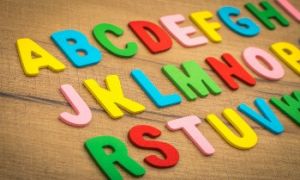Sustainability Activities not only teach them about the importance of taking care of our planet. The following article provides information on Sustainability Activities For Toddlers, Sustainability Activities For Preschoolers, Linking To The EYLF Outcomes and more.
Sustainability Activities For Toddlers
-
Recycled Art Projects: Use old newspapers, magazines, cardboard boxes, and other recyclable materials to create art projects. Toddlers can make collages, sculptures, or even simple toys.
-
Nature Walks: Take the toddlers on a nature walk around the neighborhood or a nearby park. Encourage them to observe and collect natural items like leaves, flowers, and small rocks. Use these items for a nature-themed craft project.
-
Planting Seeds: Get the toddlers involved in planting seeds in small pots or a garden bed. Teach them how to water and care for the plants as they grow.
-
Composting: Set up a small compost bin and teach the toddlers about composting. Show them how to add fruit and vegetable scraps, leaves, and other compostable materials to the bin.
-
Water Conservation: Set up a small water play area and teach the toddlers about the importance of conserving water. Show them how to turn off the tap when not in use and use a watering can for the plants.
-
Upcycling Projects: Use old clothes, fabric scraps, or broken toys to create new and useful items. For example, you can turn an old T-shirt into a reusable shopping bag or a broken toy into a unique piece of art.
-
Storytime: Read books about sustainability and the environment to the toddlers. Some great options include "The Lorax" by Dr. Seuss and "The Earth Book" by Todd Parr.
-
Sorting Recyclables: Set up a recycling station with bins for different types of materials like paper, plastic, and metal. Teach the toddlers how to sort recyclables and explain why it's important.
-
Eco-Friendly Cleaning: Involve the toddlers in simple cleaning tasks using eco-friendly cleaning products. Show them how to clean their toys, tables, and other surfaces using safe and natural cleaning solutions.
-
Reusable Craft Supplies: Use items like toilet paper rolls, egg cartons, and bottle caps for craft projects. These items can be turned into fun and creative toys or decorations.
-
Recycled Sensory Bottles: Fill empty plastic bottles with different recycled materials like beads, sand, small toys, or rice. Seal them tightly and let the toddlers explore the different sounds and textures.
-
Eco-Friendly Painting: Use natural items like leaves, sticks, and rocks as painting tools. You can also make natural paints using fruits and vegetables.
-
Bird Feeders: Make simple bird feeders using pine cones, peanut butter, and birdseed. Hang them outside and watch the birds come to visit.
-
Litter Picking: Take the toddlers on a litter-picking walk around the neighborhood or a park. Teach them about the importance of keeping the environment clean and disposing of trash properly.
-
Toy Swap: Organize a toy swap event where toddlers can exchange toys they no longer play with. This teaches them about reusing and sharing.
-
Rainwater Collection: Set up a simple rainwater collection system using buckets or barrels. Use the collected water to water plants or for sensory play activities.
-
Natural Dyeing: Use natural materials like onion skins, beetroot, and turmeric to dye fabrics. Toddlers can help with the process and create their own colorful scarves or cloths.
-
Solar Oven: Create a simple solar oven using a cardboard box, aluminum foil, and plastic wrap. Use it to cook simple snacks like s'mores or toast.
-
Bug Hotels: Build bug hotels using natural materials like sticks, leaves, and pinecones. Place them in the garden to attract insects and teach toddlers about different types of bugs.
-
Eco-Friendly Playdough: Make homemade playdough using natural ingredients like flour, salt, water, and food coloring. Avoid store-bought playdough that may contain harmful chemicals.
-
Earth Day Celebration: Plan an Earth Day event with various sustainability activities, stories, and songs. Teach the toddlers about the importance of caring for the Earth and how they can make a difference.
-
Leaf Rubbing Art: Collect different leaves and place them under a sheet of paper. Have the toddlers use crayons to rub over the paper and create beautiful leaf impressions.
-
Recycled Paper Making: Show the toddlers how to make recycled paper using old newspapers and a blender. They can decorate the paper with natural materials like flower petals or leaves.
-
Nature Scavenger Hunt: Create a list of natural items for the toddlers to find during a nature walk. This could include things like a feather, a smooth rock, or a specific type of leaf.
-
Plant-Based Snacks: Involve the toddlers in making simple plant-based snacks like fruit kebabs, vegetable sticks with hummus, or smoothies. Teach them about healthy eating and the benefits of plant-based foods.
Sustainability Activities For Preschoolers
-
Garden Projects: Involve preschoolers in growing their own vegetables or flowers. They can help with planting, watering, and weeding, and watch as their plants grow.
-
Solar-Powered Toys: Introduce solar-powered toys or gadgets to teach preschoolers about renewable energy. Explain how sunlight can be turned into energy.
-
Recycled Instruments: Make musical instruments using recycled materials like jars, tins, and rubber bands. Preschoolers can create their own band and learn about reusing items.
-
Nature Journals: Give each preschooler a notebook to create a nature journal. Encourage them to draw or paste leaves, flowers, or other natural items they find.
-
Eco-Friendly Crafts: Use natural and eco-friendly materials for craft projects. For example, make leaf prints, stone paintings, or flower crowns.
-
Energy Conservation Games: Turn energy-saving practices into fun games. For instance, play “Who Can Turn Off the Lights Fastest” to teach them about conserving electricity.
-
Recycling Relay Races: Set up a recycling relay race where preschoolers sort items into the correct recycling bins. Make it a fun and educational competition.
-
Rainwater Collection: Teach preschoolers about collecting rainwater. Use it to water plants or for sensory water play activities.
-
Educational Videos and Songs: Watch age-appropriate videos or sing songs about sustainability and the environment. This can be both fun and educational.
-
Cleaning Up Nature: Organize a clean-up day at a local park or beach. Teach preschoolers the importance of keeping our environment clean by picking up litter.
-
DIY Birdhouses: Build birdhouses using recycled materials. Preschoolers can decorate them and place them in the garden to attract birds.
-
Compost Observation: Set up a clear compost bin so preschoolers can observe the decomposition process. They can learn about how food scraps turn into soil.
-
Watering Plants: Give preschoolers the responsibility of watering plants. They can use small watering cans and learn about the importance of taking care of plants.
-
Eco-Friendly Storytime: Read books that focus on sustainability and nature. Some great choices are “The Curious Garden” by Peter Brown and “The Earth and I” by Frank Asch.
-
Building with Natural Materials: Use sticks, stones, and leaves to build simple structures. This encourages creativity and teaches them about using natural resources.
-
Recycled Paper Craft: Show preschoolers how to make their own paper using recycled paper scraps. They can create beautiful handmade paper for drawing or writing.
-
Eco-Friendly Cooking: Involve preschoolers in cooking simple, eco-friendly recipes. Teach them about using seasonal and locally sourced ingredients.
-
Green Science Experiments: Conduct simple science experiments related to sustainability, like creating a mini ecosystem in a jar or observing how plants grow under different conditions.
-
Reusable Bags and Containers: Encourage preschoolers to use reusable bags and containers. They can decorate their own tote bags or lunch boxes.
-
Nature Scavenger Hunt: Create a scavenger hunt with a list of natural items for preschoolers to find. This activity helps them connect with nature and learn about different plants and animals.
-
DIY Wind Chimes: Collect natural items like shells, sticks, and pinecones to create beautiful wind chimes. Preschoolers can decorate them and enjoy the sounds they make in the wind.
-
Eco-Friendly Play Spaces: Create play areas using natural materials like logs, rocks, and sand. These spaces encourage imaginative play and connect preschoolers with nature.
-
Recycled Clothing Fashion Show: Organize a fashion show where preschoolers can model outfits made from recycled materials. Encourage them to get creative with their designs.
-
Nature-Themed Story Stones: Paint small stones with different nature-themed images like animals, plants, and weather. Preschoolers can use these stones to create stories and learn about nature.
-
Eco-Friendly Science Experiments: Conduct simple experiments like making a mini volcano with baking soda and vinegar, or creating a solar oven to cook snacks. These activities teach about natural processes and renewable energy.
-
Recycling Art Station: Set up a designated area for recycling art projects. Provide a variety of recyclable materials and let preschoolers create their own masterpieces.
-
Bird Watching: Equip preschoolers with binoculars (or make pretend ones from toilet paper rolls) and go bird watching. Teach them about different bird species and their habitats.
-
Water Filtration Activity: Demonstrate a simple water filtration process using a plastic bottle, sand, gravel, and cotton. Explain how clean water is important for both humans and the environment.
-
Nature Collages: Collect leaves, flowers, and other natural items to create beautiful collages. This activity helps preschoolers appreciate the beauty of nature.
-
Reusable Snack Bags: Make reusable snack bags from fabric scraps. Preschoolers can help with simple sewing tasks and learn about reducing plastic waste.
-
Eco-Friendly Outdoor Games: Organize outdoor games like sack races, nature scavenger hunts, or hopscotch using natural materials. These games encourage physical activity and environmental awareness.
-
Upcycled Jewelry: Use beads, buttons, and other small recycled items to create unique jewelry pieces. Preschoolers can make bracelets, necklaces, and more.
-
Nature Weaving: Create simple weaving frames using cardboard or sticks. Preschoolers can weave with natural materials like grass, leaves, and flowers.
-
Bug Safari: Go on a bug safari in the garden or park. Provide magnifying glasses and guide preschoolers in observing and identifying different insects.
-
Eco-Friendly Cleaning Kits: Create small cleaning kits with eco-friendly products for preschoolers to use. Teach them how to clean their toys and play areas using safe and natural solutions.
-
Homemade Birdseed Ornaments: Make birdseed ornaments using cookie cutters, gelatin, and birdseed. Hang them outside and watch the birds enjoy the treats.
-
Green Building Blocks: Use natural or recycled materials to create building blocks. Preschoolers can build structures and learn about sustainable construction.
-
Eco-Friendly Gift Wrapping: Teach preschoolers how to wrap gifts using recycled paper, fabric, or reusable bags. This promotes sustainable gift-giving practices.
-
Nature Bracelets: Use tape or sticky bracelets to collect small natural items like leaves and flowers during a nature walk. Preschoolers can create their own nature bracelets.
-
Green Transportation: Teach preschoolers about eco-friendly transportation options like walking, biking, or using public transport. Create a mini town with toy vehicles to demonstrate different modes of transport.
Linking To The EYLF Outcomes
Outcome 1: Children Have a Strong Sense of Identity
-
Nature Journals: Encourages self-expression and helps children understand their relationship with the environment.
-
Family Gardening Projects: Involving family in gardening helps children build connections and a sense of belonging.
Outcome 2: Children Are Connected With and Contribute to Their World
-
Recycling Relay Races: Foster an understanding of their role in caring for their environment.
-
Community Clean-Up Days: Teach responsibility and promote community involvement.
Outcome 3: Children Have a Strong Sense of Wellbeing
-
Yoga in Nature: Integrate physical and mental health activities while connecting with nature.
-
Eco-Friendly Snack Making: Promotes healthy eating and understanding where food comes from.
Outcome 4: Children Are Confident and Involved Learners
-
Nature Science Experiments: Encourage curiosity and problem-solving skills.
-
Building with Natural Materials: Enhance creativity and critical thinking through hands-on activities.
Outcome 5: Children Are Effective Communicators
-
Storytime with Eco-Themed Books: Improve language skills and understanding of sustainability concepts.
-
Nature-Themed Story Stones: Foster storytelling and language development with a focus on the natural world.
Further Reading
Sustainability Practices in Childcare
Teaching Children About Sustainability
Sustainability Ideas For Early Childhood Services
Sustainable Practices For The Preschool Room
Incorporating Natural Elements In Outdoor Spaces
Sustainable Posters


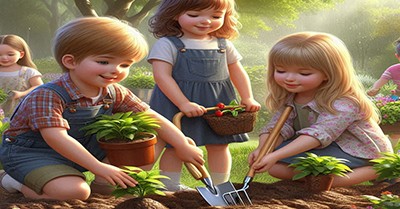
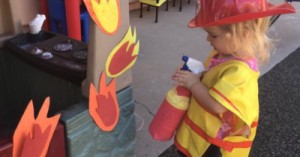
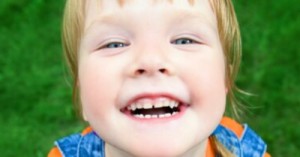
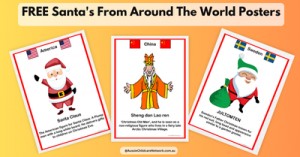
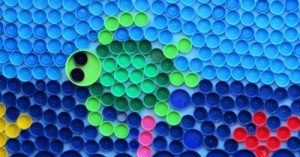
 Open ended questions cannot be responded to with one word answers such as yes or no. These types of questions enables a child to provide
Open ended questions cannot be responded to with one word answers such as yes or no. These types of questions enables a child to provide During your child’s preschool years, an important milestone begins to emerge. This is the development of pre-writing skills. Pre-writing skills are used to encourage, develop
During your child’s preschool years, an important milestone begins to emerge. This is the development of pre-writing skills. Pre-writing skills are used to encourage, develop Open ended materials enables children to play freely. They are objects that have no rules to follow, use or function. Raw materials that can be
Open ended materials enables children to play freely. They are objects that have no rules to follow, use or function. Raw materials that can be An Acknowledgment of the Country is a way of showing respect for the Traditional Owners and can be given by both non-Indigenous people and Aboriginal
An Acknowledgment of the Country is a way of showing respect for the Traditional Owners and can be given by both non-Indigenous people and Aboriginal Language plays an important role in a child’s development. It enables a child to communicate effectively with their family, learn at school, socialize with friends,
Language plays an important role in a child’s development. It enables a child to communicate effectively with their family, learn at school, socialize with friends, Like adults, children have to deal with their own stress in life. Moving house, starting a new school, preparing for a new sibling - these are
Like adults, children have to deal with their own stress in life. Moving house, starting a new school, preparing for a new sibling - these are Playdough is such a versatile material. It provides numerous benefits to children as they manipulate it, it is safe and soothing and provides children with
Playdough is such a versatile material. It provides numerous benefits to children as they manipulate it, it is safe and soothing and provides children with Teaching children about sustainability enables them to appreciate and respect the natural environment. Early childhood services can provide meaningful hand on learning experiences in order
Teaching children about sustainability enables them to appreciate and respect the natural environment. Early childhood services can provide meaningful hand on learning experiences in order Recycling is an important concept that teaches children to care for the environment. It encourages children to be responsible and show a growing appreciating for
Recycling is an important concept that teaches children to care for the environment. It encourages children to be responsible and show a growing appreciating for When children apply paint to paper, glue things together, or pound a lump of clay, they experiment with colour, shape design and texture.
When children apply paint to paper, glue things together, or pound a lump of clay, they experiment with colour, shape design and texture.

